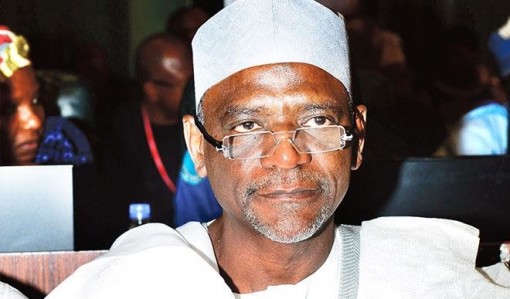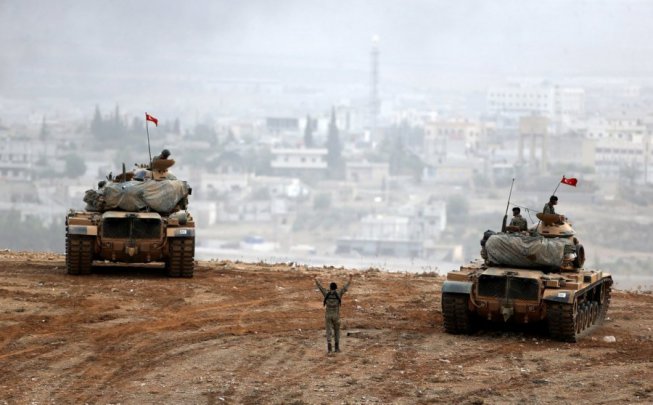Africa/ Nigeria/ 14.11.2018/ Source: punchng.com.
THE National Economic Council recently made a crucial decision in its proposal to federal and state governments to allocate 15 per cent of their annual budgets to education in furtherance of a state of emergency declared in that sector. Many stakeholders had before now, advocated this initiative, against the backdrop of the total collapse of the system, from the basic to tertiary levels. In 2018, N605.8 billion was allocated to the sector by the Federal Government, representing seven per cent of the N8.6 trillion budget.
A special task force or committee will be set up to manage the funds at all levels of government and also oversee infrastructure overhaul in selected schools. The Deputy Governor of Edo State, Philip Shaibu, who elaborated on the proposal, said the primary school level was the focus, just as the entire reform will be anchored on a strategic plan of action already designed by the Federal Ministry of Education. He said, “If we address basic education and the foundation is well laid at that level, obviously, the problems in the secondary and tertiary education would have been half solved.”
The strategic document places emphasis on: out-of-school children; adult literacy and physically challenged; science, technology and mathematics; technical and vocational; teacher education; quality and access to tertiary education; ICT in education and improved library services.
Across the 36 states, many primary schools are dilapidated: pupils sit on the bare floor to learn; in the North, especially in Sokoto State, “more than 50 per cent of the entire teachers in the state cannot read” instructional materials supplied to schools, the then Executive Secretary, Universal Basic Education Commission, Ibrahim Moddibo, said in 2012. In Kaduna State within the same period, 21,780 teachers out of 33,000 failed a primary four pupils test, a shocking revelation that Kwara State also experienced. Added to this incongruous mix is the perennial delay in the payment of teachers’ salaries.
The NEC prognosis is right. But this is a minor point at issue, considering that similar attempts in the past were not allowed to work. In fact, the percentage of the budget devoted to education is not as critical as the faulty implementation strategies and monstrous corruption that trammels every national endeavour. In an attempt to make education more functional, the 6-3-3-4 system was introduced, with emphasis on continuous assessment, technical knowledge acquisition and guidance counselling.
However, the country made a total mess of the scheme: teachers for the technical subjects and workshop equipment were not available, just as the transition from Junior Secondary School 3 to Senior Secondary School 1 was automatic for every pupil. Emergency contractors, mostly fronts for the bureaucrats, milked the system. Absurdly, many years after the country inaugurated the system, equipment imported for it was discovered abandoned at the Lagos seaport.
Interventionist funds like UBEC grants and Tertiary Education Trust Fund have been designed to improve the standard of education. But many state governors divert grants for fixing primary schools to other priority areas or embezzle them outright. It is an abuse of office for which some former governors are being prosecuted by the Economic and Financial Crimes Commission. In many cases, they fail to provide their counterpart funding or meet other due process requirements. This is why N86 billion meant for states was idle as of September.
The situation is not different at TETFund. Its Executive Secretary, Abdullahi Baffa, in July, visited the EFCC acting-Chairman, Ibrahim Magu, and requested his assistance “to tackle the menace of inappropriate projects, abandoned projects, mismanaged funds, and stolen funds, which are almost grounding the institutions.” Angered by how institutions treat the grants as slush funds, President Muhammadu Buhari did not approve TETFund 2017 interventions. But in 2016, it received N213 billion from which universities, polytechnics and colleges of education were allocated N1 billion, N691.6 million and N679 million, respectively.
This is a malodorous landscape that must be cleansed for any serious educational revival to take place. Therefore, giving education priority attention must go beyond official rhetoric. Understanding the fact that education is the bedrock of economic development and the wealth of nations is imperative. Countries in Europe, America and parts of Asia, which have transited from the Industrial Revolution to the Third Revolution – the digital age, are now embracing the Fourth Revolution – the age of quantum computing, robotics, artificial intelligence, nanotechnology, autonomous vehicle and 3D printing. They have made the point that investment in productive knowledge makes all the difference. This has brought them enormous wealth and high standard of living.
Nigeria may have been centuries behind, yet, it has to begin the race, which the state of emergency in education symbolises, if successfully executed. Consequently, rather than continue to merely “fund education” without the desired results, it should now “invest in education.” The quality of education cannot rise above the level of the teachers. This is why training and retraining teachers; their motivation; creating an ideal environment for learning to take place; providing instructional materials and effective school supervision should be areas of special focus. Without functional basic and secondary education, Nigeria’s entire education architecture is a superstructure erected on quicksand.
It is for this reason that universities now decry the quality of their intakes. University education in Nigeria has become a huge joke with many misfits serving as administrators and the increasing number of such schools. The base, absurd principle of: “let us establish them first, after which the issue of funding would be addressed,” should stop. With existing funding gaps that provoke the Academic Staff Union of Universities to strike regularly; obsolete libraries and science laboratories, shortage of hostels, lecture halls and the alarming mismatch in the teacher and student ratio, higher institutions of learning in Nigeria should be helped to rediscover their very essence.
Source of the notice: https://punchng.com/beyond-necs-15-per-cent-for-education/









 Users Today : 291
Users Today : 291 Total Users : 35459886
Total Users : 35459886 Views Today : 466
Views Today : 466 Total views : 3418438
Total views : 3418438